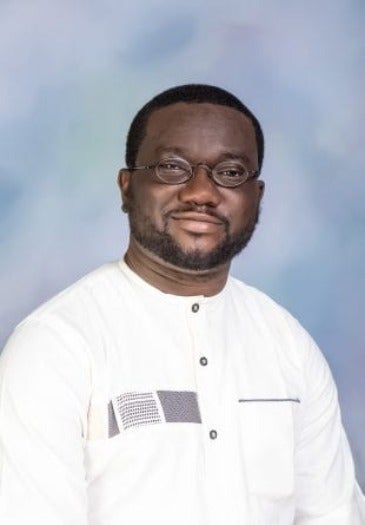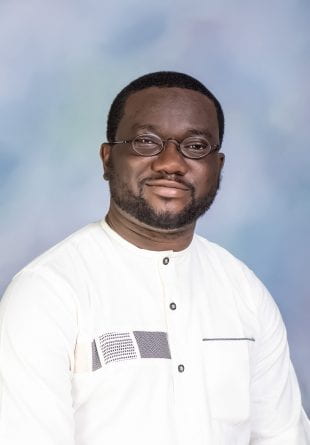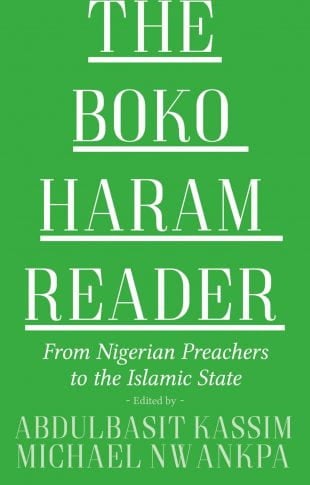Abdulbasit Kassim had already dealt with a major setback during his Ph.D. studies at Rice — an unexpected battle with stage 3 cancer — when 18-month's work disappeared in a heartbeat.
Kassim had spent hundreds of hours in libraries across Africa. He was in his home country of Nigeria, elated and ready to return to Houston when someone stole the backpack containing his laptop, travel documents and everything else he needed to finish his Ph.D.
“I had to start all over again,” Kassim said.
And then the COVID-19 pandemic hit.
But for Kassim, this was just another hurdle to hop — which he did, elegantly, performing much of his research remotely with the assistance of a network of professors and librarians, some of whom would even “walk” Kassim through archives over FaceTime. “Is this the document you need? Is this the book?” they’d ask, before scanning and emailing them to the doctoral candidate, page by page, day after day.
Without their assistance, he said, he might not have won a Mellon/ACLS Dissertation Completion Fellowship this year. Kassim is only the second Rice graduate student to win the fellowship, and the first in the School of Humanities. The award gives Kassim the funding he needs to finish his dissertation, but it also provides something even more vital to his work: recognition and appreciation.
“This fellowship was a defining moment for me because it's not about the money,” Kassim said. “For me it's about the status and academic worth of the award, because it’s the most competitive Ph.D. fellowship in humanities and social sciences.”
Kassim’s dissertation tackles continuity and change in the intellectual history of Islamic thought, reform and jihad in Hausaland and Borno from 1700 to 2015. The latter date is the same year he entered the Ph.D. program in Rice’s Department of Religion.
Attracted by the scholarly work of Professor of Religion David Cook, whose studies range from early Islamic history and development to Muslim apocalyptic literature and movements, Kassim applied to Rice from his master’s program in England. Soon, Kassim was in Houston, in a brand-new country, where he knew no one; it could have been easy to feel alone. But Kassim said he felt at home at Rice right away — especially with his doctoral adviser, Cook.
Cook is intensely interested in the apocalyptic affinities of Boko Haram, the Nigerian jihadi-Salafi group. Together at Rice, Kassim and Cook worked on translations of the group’s texts and audio recordings, which became Kassim’s first co-edited book — and the first book on Boko Haram to translate vital primary sources from Arabic, Hausa and Kanuri into English.
When Kassim was diagnosed with cancer in 2016, he said his support network at Rice kicked in right away: Between treatments at MD Anderson and Baylor St. Luke’s, both at the Texas Medical Center across the street from campus, Cook and others — including professors Elias Bongmba and Niki Kasumi Clements, former director of Rice Student Health Services Stacy Ware and the Oyewuwo family at the Nigerian Muslim Association of Greater Houston — made sure Kassim had everything he needed, including company and encouragement. They even raised funds to help cover his medical bills.
“I was depressed, mentally and physically exhausted and thought of quitting,” he said. But his Rice colleagues were always there to support him during these low points. “I was in this country all by myself, but they were there for me — my adviser was there for me. He treated me like a son. It was more than an academic relationship; he has been like a father to me.”
Cook, like most people in the department, affectionately refers to Kassim as “AB.” Their respect and admiration is mutual: “Working with AB is terribly fun,” Cook said. After the Boko Haram book was published in 2018, Cook took a trip to visit Kassim’s family in Lagos.
“That was amazing,” Cook said. “Even though I had traveled to Nigeria before, it was the first time that I felt real hospitality. AB's family and AB himself are intensely driven to excel educationally, and all of them have been quite successful. His mom came up from a very difficult family situation and instilled a strong work ethic in all of her children.”
With his first co-edited book already published — a feat in and of itself for a graduate student — and the manuscript for his second book submitted to the publisher, Kassim’s own work ethic is wildly apparent. And while it can be difficult for freshly minted Ph.D.s to be productive, Kassim said he won’t encounter that problem when he graduates.
“For me, my current research is very dear to me and I have a fervent drive for research productivity — and I'm not just saying this,” Kassim said with a laugh. “Right now, I'm writing my dissertation, but already I'm thinking of three future projects.”
In the course of those many, many months of archival research, he said, he found academic material for three new monographs or other projects. He’ll be able to tackle those once his Ph.D. is finished, thanks in large part to the funding provided by the Wagoner Foreign Study Scholarship (through Rice's Center for Civic Leadership) and the Mellon/ACLS Dissertation Completion Fellowship.
This work ethic is driven, he said, in part by gratitude — especially to those who kept him motivated along the way, including his colleagues at Rice as well as Northwestern University, where he worked on his Ph.D. in its renowned Melville J. Herskovits Library of African Studies as a visiting doctoral fellow at the Institute for the Study of Islamic Thought in Africa.
Kassim’s network expanded as he worked to include professors at Vanderbilt University, Rutgers University, the University of Virginia, Bowdoin College, Western Carolina University, the University of Illinois Urbana-Champaign and Ohio State University — impressive enterprising for a scholar who was unfamiliar with the American academic community before coming to Rice.
“These people really went out of their way to help me,” he said. “I mean, the world can be a terrible place” — just look at that stolen backpack and laptop, for instance — “but honestly, there are so many good people.”
Within Rice, he said, that list also includes Dean of Humanities Kathleen Canning, who emailed personal notes of support; Professor Paula Sanders, Zahra Jamal and the Boniuk Institute for the Study and Advancement of Religious Tolerance, who provided Kassim with a special fellowship during the pandemic; the Humanities Research Center; and the Baker Institute for Public Policy, where his work was supported by historians such as Alan Matusow as well as the institute’s director, Edward Djerejian.
“I shared this story as a form of gratitude, and also to show why we need to build individual resilience in whatever we do,” Kassim said. “No matter how tough those moments can be for you, it is not the end. Guess what? You can still make giant strides going forward.”



